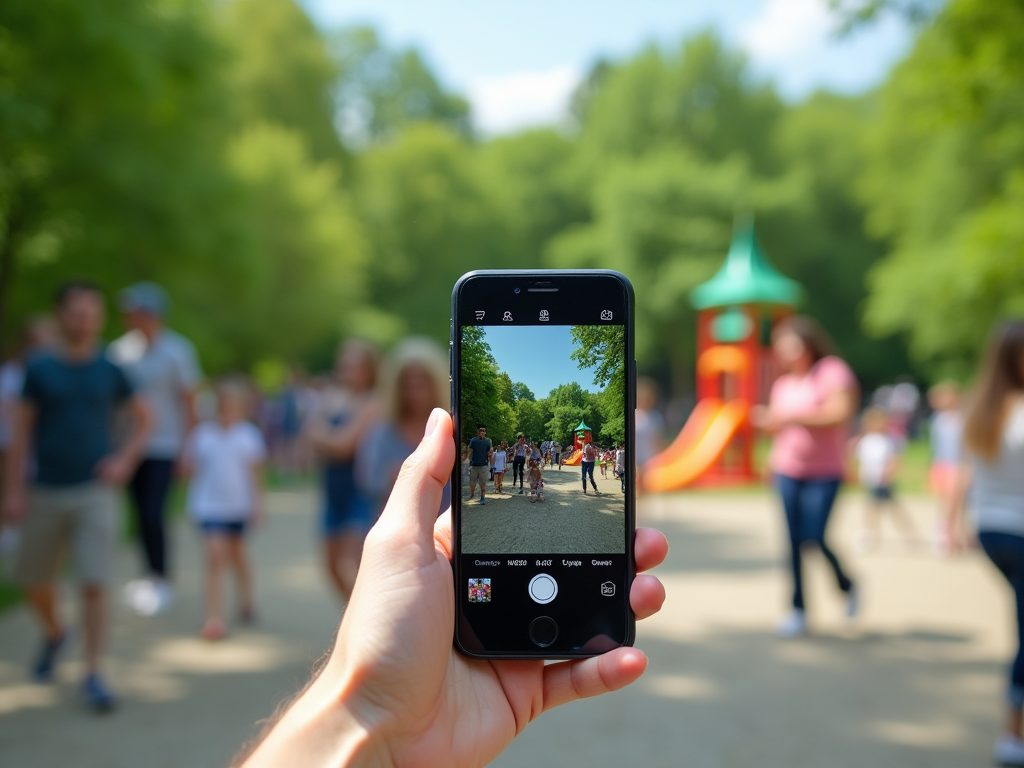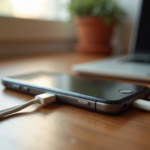In a world where connectivity plays a pivotal role in our everyday lives, finding the right smartphone tailored to your unique needs can be an overwhelming journey. With countless options available, each boasting a myriad of features, it’s easy to get lost in the details. Whether you’re an avid photographer wishing to capture life’s moments or a business person needing productivity tools at your fingertips, this guide will help you navigate through the noise of advertisements and specifications. There are several critical factors to consider that will ultimately shape your final choice. By understanding your usage patterns and diving into the significant features that matter most, you can make an informed decision that enhances your digital experience. Let’s explore the essentials that will steer you in the right direction.
Understanding Your Requirements

Before diving into specifications and brand comparisons, it’s essential to identify your personal needs and usage patterns to guide your smartphone selection. Ask yourself a few key questions: What tasks do I perform most often on my device? Am I more likely to use it for communication, browsing, or entertainment? Recognizing these priorities will not only streamline your options but also help you to avoid feeling overwhelmed when faced with choices. Each smartphone comes with various features, and knowing what aligns with your lifestyle is crucial. Take a moment to reflect on your daily habits and how they relate to smartphone usage. This self-assessment will greatly assist you in making the right choice.
- Do you primarily use your smartphone for social media, gaming, photography, or productivity?
- How often do you rely on app-specific functions, such as GPS, financial management, or health tracking?
- What level of performance do you require for gaming or intensive applications?
Key Features to Consider

Smartphones come packed with a variety of features. Knowing what to prioritize can simplify your search immensely. This section covers some of the key features to look for when selecting a device. From operating systems to camera capabilities, understanding these aspects will help you make a more informed choice. The perfect smartphone should be the one that feels seamless in your daily routines and workflows. Let’s break down some of these essential features.
Operating System: Android vs. iOS
Operating systems define the user experience on smartphones. Android devices offer a wide range of customization options, allowing users to tailor their devices to their specific needs. In contrast, iOS devices typically provide a more streamlined experience with consistent updates. Your preference might depend on whether you value flexibility or simplicity. Exploring the app ecosystem will also guide you, as certain applications may be exclusive to one platform. Choose the ecosystem that aligns with your lifestyle and preferences.
| Feature | iOS | Android |
|---|---|---|
| Customization | Limited | Extensive |
| App Ecosystem | More exclusive apps | Wider variety |
| Regular Updates | Timely | Varies by manufacturer |
Display Quality and Size
The display is the first point of interaction with your device. Understanding how screen dimensions and resolutions affect your viewing experience will allow you to choose the right size for your needs. A larger screen may enhance media consumption, while a smaller device could make everyday carry more manageable. It’s important to balance visual experience with portability. Additionally, take into account features such as refresh rates, which can impact gaming or video playback. A vivid, high-resolution display may greatly enhance your user experience.
Camera Capabilities
For many users, the camera is a significant factor when selecting a smartphone. Identify how important camera quality is in your daily life—do you take pictures frequently, or do occasional snapshots suffice? Factors such as megapixels, aperture sizes, and additional camera features all contribute to overall performance. Make sure to consider the capabilities of both the front and rear cameras, especially if you’re enthusiastic about social media. A multi-lens system can offer versatility for different shooting scenarios. Research the specific camera functions that will support your photography needs.
Battery Life and Charging Options
With a wide array of smartphone choices available, battery life can often be an overlooked aspect. Investigate the average battery life in the devices you are considering, as this will give you insights into how often you may need to charge your phone. Additionally, look into features such as fast charging and wireless charging capabilities. A smartphone that supports faster charging options can prove to be a lifesaver during busy days. It’s always nice to know that when time is limited, you can quickly recharge your device and stay connected.
Budget Considerations
Setting a budget that fits your financial situation is crucial while remembering the trade-offs between price and features. Knowing what you are willing to spend can help narrow down your choices significantly. Expensive doesn’t always mean better — there are excellent mid-range options that don’t compromise on crucial features. Understanding the price ranges available also allows you to make an informed decision. Many smartphones offer comparable features at various price points, so staying budget-conscious is vital. Don’t forget to consider any additional costs such as accessories or insurance when forming your budget.
- Explore different price ranges, noting what features you can expect in each category.
- Consider second-hand or refurbished devices as potential budget-friendly options.
- Watch for sales events to score a better deal on a new smartphone.
Comparing Brands and Models
Once you have a clear understanding of your needs and budget, it’s time to compare specific brands and models available in the market. Researching user reviews and recommendations can provide valuable insights into user satisfaction and potential issues. Expert reviews often highlight areas where specific models excel, enabling you to make a well-rounded comparison. Checking for side-by-side comparisons between similar models can help you understand the subtle yet crucial differences that might impact your decision. Keep an eye out for performance benchmarks and durability ratings as these can greatly influence long-term satisfaction.
- Seek out expert reviews and user opinions to gauge device satisfaction rates.
- Use comparison websites to place multiple models side by side.
- Pay attention to long-term reviews that assess performance after extended use.
Conclusion
Selecting the right smartphone requires a clear understanding of your needs, the features that matter most to you, and careful consideration of your budget. By following the guidelines outlined in this article, you can make a more informed decision and find a smartphone that enhances your daily life. The intersection of personal usage patterns and device capabilities will ultimately lead you to the best selection for your lifestyle. Remember to weigh the pros and cons of each feature and how they align with your daily tasks. Your smartphone should serve as an enhancement to your life rather than a distraction or burden. Take the time to explore, compare, and reflect before making your final choice.
Frequently Asked Questions
- What is the best smartphone for photography? Smartphones with high megapixel counts, advanced camera features, and good low-light performance, such as the latest models from Apple, Samsung, and Google, tend to excel in photography.
- How much storage do I need on my smartphone? If you take a lot of photos, save music, or install many apps, consider at least 64GB of storage. For heavy media use, 128GB or more is recommended.
- Is iOS better than Android? It depends on personal preference. iOS offers a more streamlined user experience and timely updates, while Android provides more customization options.
- How can I improve my smartphone’s battery life? To extend battery life, reduce screen brightness, limit background app usage, and turn off location services when not needed.
- Should I buy a refurbished smartphone? Buying a refurbished smartphone can be a great way to save money, provided you purchase from reputable sellers who offer warranties.


